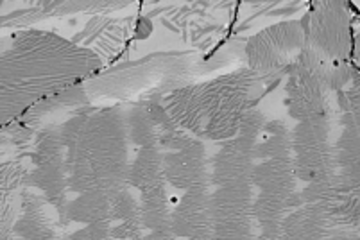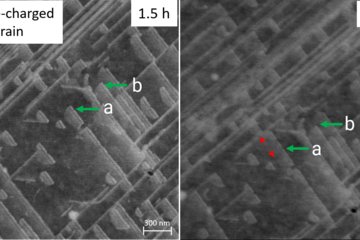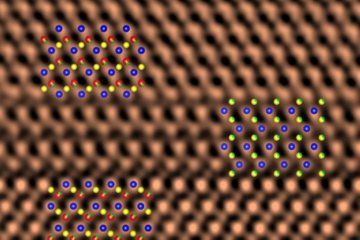All genres
41.
Talk
3D EBSD measurements in ultra fine grained Cu 0.17wt% Zr obtained from ECAP. Seminar talk, Carnegie Mellon University, Pittsburgh, PA, USA (2008)
42.
Talk
Three-dimensional tomographic EBSD measurements of the crystal topology in heavily deformed ultra fine grained pure Cu and Cu–0.17wt%Zr obtained from ECAP and HPT. DPG Frühjahrstagung 2008, Berlin, Germany (2008)
43.
Talk
Neue Wege zum Design metallischer Werkstoffe. Seminar talk at Technische Universität Darmstadt, Darmstadt, Germany (2007)
44.
Talk
Grain boundary engineering by application of mechanical stresses. The Third International Conference on Recrystallization and Grain Growth, Jeju Island, South Korea (2007)
45.
Talk
A texture component model for predicting recrystallization textures. The Third International Conference on Recrystallization and Grain Growth, Jeju Island, South Korea (2007)
46.
Talk
Neue Wege zum Design metallischer Werkstoffe. Seminar talk at Universität Essen-Duisburg, Essen, Germany (2007)
47.
Talk
Grain Boundary Engineering by Application of Mechanical Stress Fields. Carnegie Mellon University, Pittsburgh, PA, USA (2007)
48.
Talk
Korngrenzen auf Wanderschaft: Wege zum Design metallischer Werkstoffe. Colloquia Academia, Akademie der Wissenschaften und der Literatur, Mainz, Germany (2007)
49.
Talk
Grain Boundary Mechanics. Naval Research Laboratory, Washington, D.C., USA (2006)
50.
Talk
Influence of mechanical stress field on grain boundaries. Georg Mason University, Washington, D.C., USA (2006)
51.
Talk
Korngrenzen auf Wanderschaft: Wege zum Design metallischer Werkstoffe. Colloquia Academia, Akademie der Wissenschaften und der Literatur, Mainz, Germany (2006)
52.
Talk
Thermal stability of ultrafine grained materials. DPG Frühjahrstagung, Dresden, Germany (2006)
53.
Talk
Korngrenzen - Mechanik: Neue Ansätze zur Beeinflussung der Mikrostruktur. Seminarvortrag, Universität des Saarlandes, Germany (2006)
54.
Talk
Microstructure mechanics: Investigation on deformation behaviour of grain boundaries. Plasticity 2003 (Keynote lecture), Québec, Canada (2003)
55.
Poster
Three dimensional characterization of microstructure of an ultra fine- grained Cu–0.17wt%Zr. 1st MACAN 2009, Berlin, Germany (2009)
56.
Teaching
Theoretische Metallkunde II, V2Ü1. Lecture: RWTH Aachen, SS 2010, Aachen, Germany, 2010
57.
Teaching
Theoretische Metallkunde II, V2Ü1. Lecture: RWTH Aachen, SS 2009, Aachen, Germany, 2009
58.
Teaching
Theoretische Metallkunde II, V2Ü1. Lecture: RWTH Aachen, SS 2008, Aachen, Germany, 2008
59.
Teaching
Korngrenzen – Mechanik: Neue Ansätze zur Beeinflussung der Mikrostruktur. Lecture: Berufungsvortrag, TU Darmstadt, Germany, July 10, 2007
60.
Teaching
Theoretische Metallkunde II, V2Ü1. Lecture: RWTH Aachen, SS 2007, Aachen, Germany, 2007











